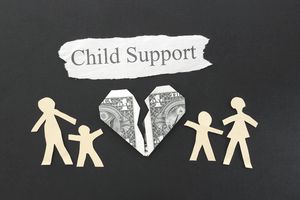After a Texas divorce, the parent with a visitation schedule usually pays child support to the parent with whom the children live primarily. Both of a child’s parents are deemed responsible for financially supporting their children through childhood, and the child support paid by the non-custodial parent is designed to aid the primary custodial parent in his or her role of providing for the children on a daily basis.
When Does Child Support End?
Child support generally ends when a child turns 18 or graduates from high school, whichever comes last. This is the standard setup. Sometimes, however, child support is extended for reasons such as the following:
- Your child has special needs.
- You and your divorcing spouse hammer out mutually acceptable terms that address your children’s financial support through college.
Working closely with an experienced family law attorney will help ensure that your children are well supported throughout their childhoods.
What about Medical Support?
Generally, the parent paying child support also has an obligation to pay their children’s medical support by covering their health insurance. This insurance typically comes through the payor’s employer (if it is available for a reasonable cost). If, on the other hand, insurance for the children is more accessible through their other parent, the non-custodial parent can pay that parent medical support directly.
What if I Lose My Job?
If the parent with the child support obligation loses his or her job, that obligation does not end. The court understands that people’s earnings can fluctuate, but parents are expected to budget accordingly. If you are the parent who pays child support, however, it is in your best interest to contact the Office of the Attorney General and the court from which your child support was ordered. While this will not reduce your obligation, it does notify the court and the state of your intent to rectify the problem. Ultimately, you will need to request a child support modification.
How Do I Qualify for a Modification?
To qualify for a child support modification, you will need to show there has been a substantial change in circumstances in your finances, in your child’s financial needs, or in the other parent’s resources. Typically, the courts will only address the issue every three years, but if you have lost your job, the court may make an exception. You will, however, need to demonstrate that you are legitimately looking for another job. Your child support payments directly benefit your children and are something you are naturally going to want to keep up with.
Can My Inability to Pay Child Support Affect My Visitation Schedule?
Child support and visitation are two separate issues, and one cannot be used as a tool to affect the other. In other words, your ex cannot keep the children from you during your court-ordered visitation because you have fallen behind in child support. Conversely, you cannot withhold child support if your children’s other parent is withholding visitation. This is another issue you will need to bring up with the court.
Discuss Your Child Support Concerns with an Experienced Attorney Today
Child support is an important matter that directly affects your children, and attorney Brett Pritchard at The Law Office of Brett H. Pritchard in Killeen, Texas, is committed to helping you obtain terms that continue to support you and your children's best interests. We can help, so please contact or call us at 254-501-4040 for more information today.







